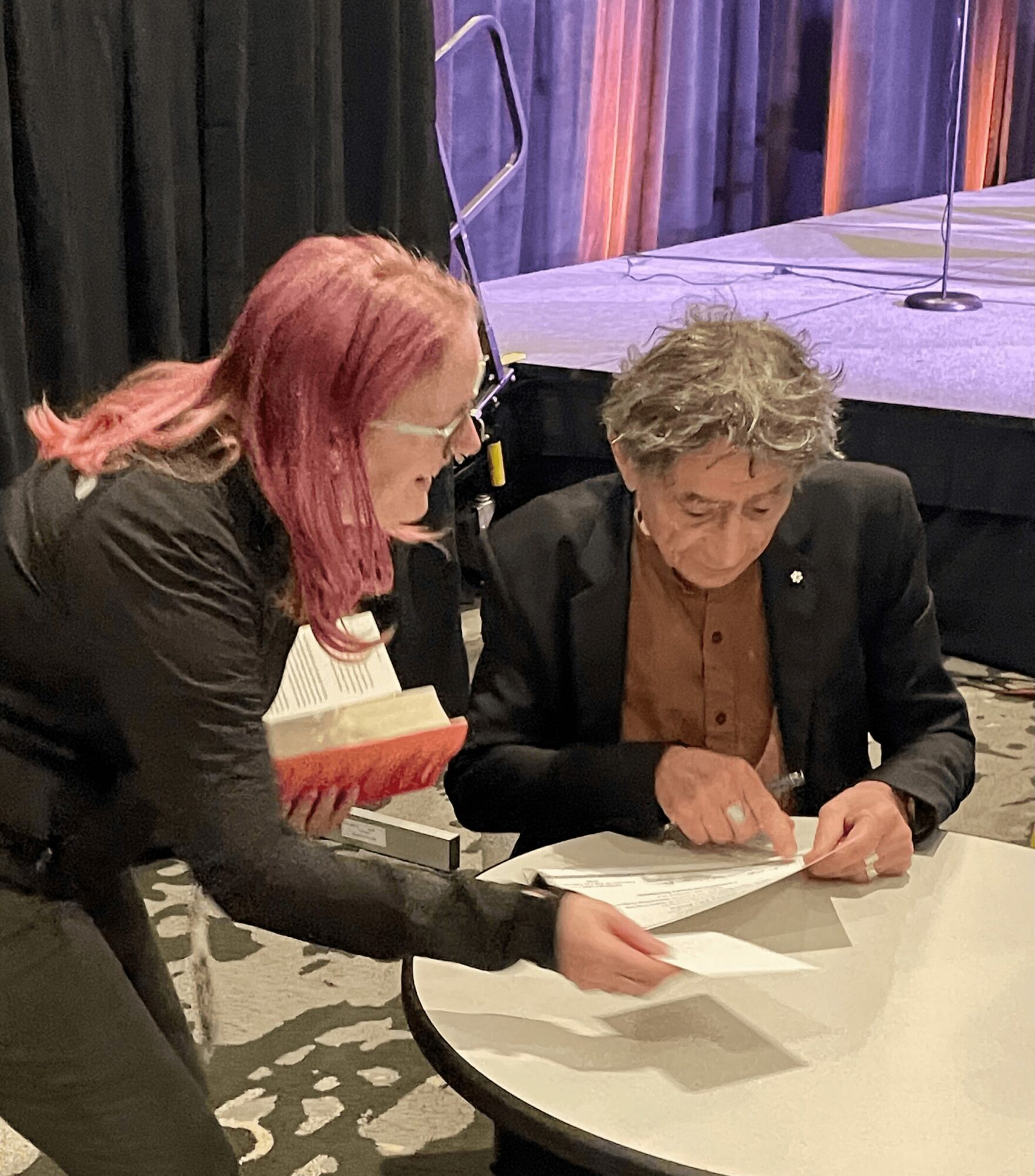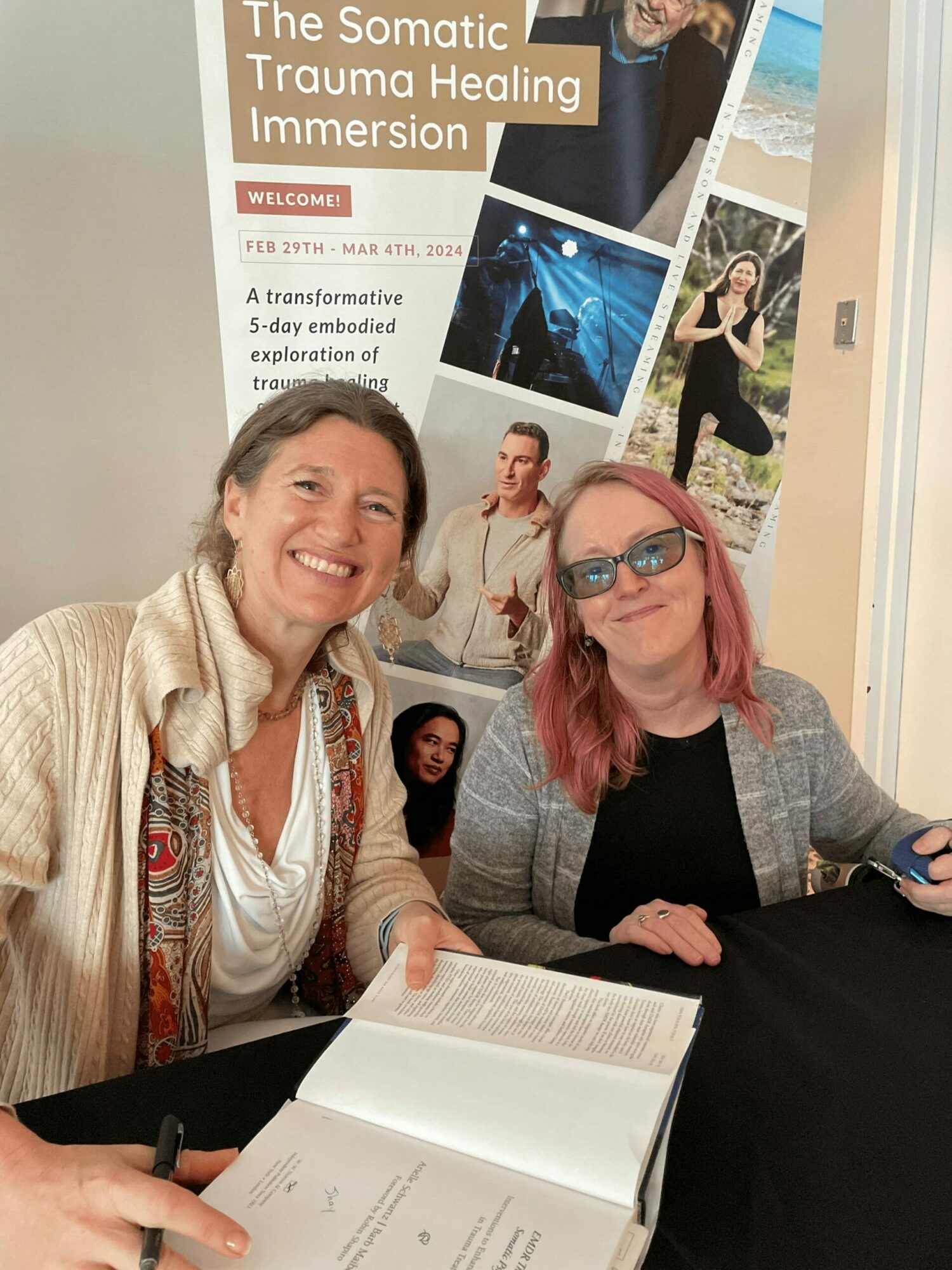

Today we’d like to introduce you to Shay DuBois
Hi Shay, please kick things off for us with an introduction to yourself and your story.
I knew I wanted to be a therapist since high school. The brain and behaviors always interested me. But, I didn’t start my graduate program until I was 40. Before that, I had a bachelor’s degree in Psychology, worked for British Airways, and TWA, traveling and seeing the world.
Growing up was difficult. One of my parents had PTSD, and the other had early childhood trauma and chronic health issues. I was always anxious and thought that was just my personality. As an adult I developed Lupus, and a friend told me about Gabor Maté’s work. I had already completed Bessel van der Kolk’s Traumatic Stress Studies Certification, so I knew about trauma in the body. But I didn’t realize my childhood experiences were trauma since I wasn’t neglected or abused. I just had chronic stress and birth trauma. I didn’t remember my birth so how could that effect me?
I decided to do Gabor Maté’s Compassionate Inquiry Professional Training. It was a year-long course that took at least 10 hours a week and demanded a lot of inner work. The first third of the training was about working through my trauma, and the rest was learning how to create a safe space for others. This was life-changing. It helped me understand myself better and become a better therapist. My clients have made amazing progress with this approach.
I spent another year in mentorship and working with Certified Practitioners to refine my skills. I am one of only 37 people in the US who is certified in Compassionate Inquiry.
Despite all my work, I still struggled with being seen and sharing my expertise. Through more trauma therapy, I found that this fear came from an event in my childhood when my church community shamed me. I had forgotten about this event, until I started really going into my body to discover where the fear and shame comes from.
My passion for healing trauma runs deep. I’ve studied Interpersonal Neurobiology, Brainspotting, Internal Family Systems (IFS), and Somatic Therapy for many years. Many clients come to me after decades of talk therapy. Just last week, a client was surprised at how much calmer her nervous system felt after only four sessions.
Somatic therapy for trauma is effective. It has improved my physical and mental health. Recently, I contributed to a National Geographic article on Somatic Therapy, something I wouldn’t have tried a year ago. https://www.nationalgeographic.com/science/article/what-is-somatic-therapy
I want people to understand that early life experiences, like birth trauma, childhood illness, or having chronically ill parents, can deeply affect us. These experiences can cause anxiety, people-pleasing, trouble with boundaries, and more. These are trauma responses, not fixed personality traits. Sometimes we have no conscious memory of the experiences, but our bodies hold the stories, and the experiences shape our beliefs about ourselves and others.
With somatic therapy, you don’t have to talk about the trauma. You can find a practitioner who uses EMDR, Brainspotting, Dance Therapy, Art Therapy, and other methods to process trauma in a way that works for you.
I still have work to do, but I finally feel alive. Healing is possible. I work with clients all over California. If you want to book a session with me or read more about somatic therapy, visit www.overcomeanxietytrauma.com. Trauma Sucks, Trauma Therapy Doesn’t Have To.
Can you talk to us a bit about the challenges and lessons you’ve learned along the way. Looking back would you say it’s been easy or smooth in retrospect?
I always knew I wanted to be a therapist but it took me a long time to get there. The most difficult thing was I had to pay my way through school. I worked two jobs and went to school full time. I took time off school to be a nanny. I did work study where I was a peer tutor in college. I knew what I wanted and I worked to achieve it.
I was a military spouse and moved every two years. It was difficult to continue education before most schools went online. I ended up doing an extra year of undergraduate because of the moves.
Traveling and living in other countries was helpful, though. I was able to get a bigger perspective on life and see the common experiences we all share. I started my graduate program as an older adult and life experience is a benefit in my career. I’ve been able to survive a lot of challenges, so I understand a lot of what my clients are going through.
Can you tell our readers more about what you do and what you think sets you apart from others?
I do therapy with teens and adults. I love to work with early childhood attachment issues. That would be adults who are children of emotionally immature parents, adults who as children had chronic health issues so didn’t go through typical developmental stages, victims of abuse and neglect, and people who have chronic health issues but they stem from stress or anxiety. I also work with adults who grew up in the child welfare system, were adopted, or were removed from their parents.
I am known for using somatic interventions to work with trauma. Somatic just means bringing the body into therapy. Where do you hold your fear, shame, anxiety? What does your depression feel like? It is more complicated than just noticing the feelings in the body. However, for so many of my clients with trauma, it is so hard to just close their eyes and try to go inside for a second. It doesn’t feel safe. I teach my clients to feel safe in their skin again.
What I am most proud of is when my client who never felt safe in the world, ventures out and does something new. When I see people start to reengage or engage for the first time and get closer to the life they want to live, that means everything!
I have done extensive training after achieving my Master’s and my Professional License, specializing in understanding the biology of trauma and how to work with the body to let go of the trauma they have been carrying.
Do you have recommendations for books, apps, blogs, etc?
Books: “When the Body Says No”
“The Body Keeps the Score”
“Therapeutic Yoga for Trauma Recovery”
”Trauma and the Body”
“Body-centered Psychotherapy”
Apps- I like mindfulness apps that give you a little reminder to bring yourself back to the moment.
I like to follow Gabor Maté
I listen to random things about neuroscience always trying to learn more to help my clients.
Pricing:
- $262.00/hr
Contact Info:
- Website: https://www.overcomeanxietytrauma.com
- Instagram: https://www.instagram.com/overcomeanxietytrauma/
- Facebook: https://www.facebook.com/TherapyWithShayDuBois
- Twitter: https://x.com/OATSHAY
- Youtube: https://www.youtube.com/channel/UCnYgtxkZL2sgTXFiqh5YRfA
- Yelp: https://www.yelp.com/user_details?userid=WynVt2yGfvn_N_Nz-W2aGA







Image Credits
Roy Tabali photographer











